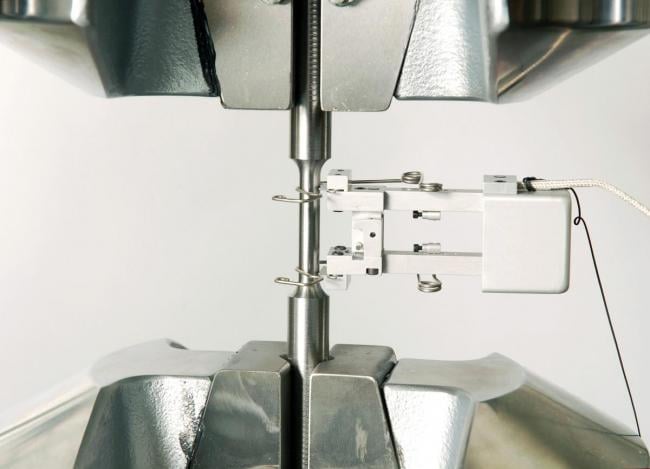Fatigue testing applies the kinds of stresses that a product will experience while in use to evaluate its ability to resist failure. During testing, the product is subjected to various types of stresses over a series of usage cycles until the specimen fails. The results can then be expressed as an S/n curve (stress vs. number of cycles to failure), which can in turn be used to estimate the product’s working life.

When a company needs to ensure safety, reliability and longevity in its products, fatigue testing should be its top priority. Any component that will be exposed to repetitive cyclic stresses such as tension, compression, and bending needs to be assessed on its ability to withstand these forces before it can enter the market. Rigorous fatigue testing can help companies preemptively identify flaws in their design and correct them as needed, providing them with an invaluable safeguard.
Fatigue Testing in Safety-Critical Industries
Certain industries have more at stake in the event of a failure. Fatigue testing helps companies minimize the risk by providing the opportunity to assess a product’s performance under the most intense stresses. Some of the fields that depend on it include:
- Aerospace
The size and complexity ofaerospace equipment makes mechanical failure particularly costly for aerospace manufacturers. In 2015, for example, a failed strut in its upper stage liquid oxygen tank caused a SpaceX rocket launched by NASA to disintegrate shortly after liftoff, costing US taxpayers at least $110 million. NASA later determined that the strut was “industrial grade” rather than “aerospace grade,” meaning that it wasn’t properly modeled or tested for that kind of application. Fatigue testing likely would have revealed that the strut wasn’t suited to the demands of space travel.
- Healthcare
Equipment failure in a medical device could be the difference between life and death. Fatigue testing can dramatically lower the risk of such dire consequences by mimicking the mechanical loading environment that a device will experience in vivo over time.
- Energy
The oil and gas industry requires reliable high-strength materials to explore, extract, refine, and transport petroleum products without jeopardizing the safety of workers. The corrosive, flammable chemicals involved in the industry’s typical applications make material failure a grave concern for both public safety and the environment.
IMR Fatigue Testing Capabilities
Effective fatigue testing can prove invaluable to manufacturers, enabling them to better protect themselves from devastating accidents that could cripple a company. At IMR Test Labs, we work to protect companies from material failure with the most comprehensive fatigue testing services available.
Certified and accredited by a number of leading manufacturers and regulatory bodies, IMR is a recognized authority in the field of fatigue testing. Regardless of the product, we thoroughly evaluate its resistance to heat, shear, tension, corrosion, fracturing, bending, and cracking, as well as many other stress it might encounter. Since we offer low displacement/high cycle and high displacement/low cycle fatigue tests, we’re able to test materials under various requested loading conditions.
For more information, download our free Introduction to Fatigue Testing.


